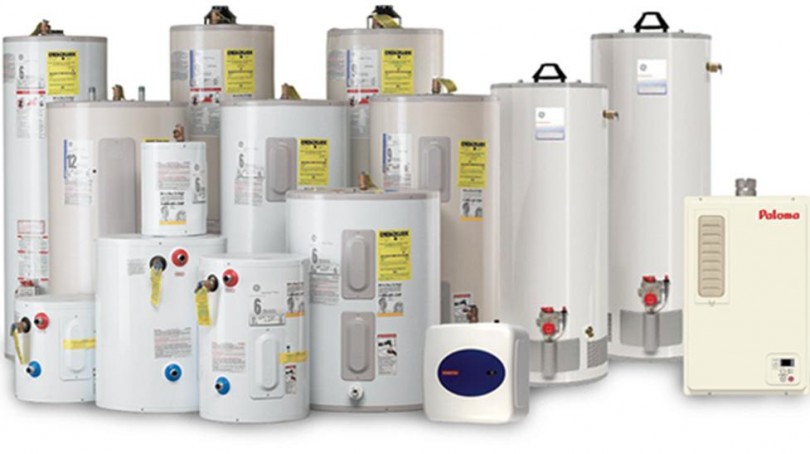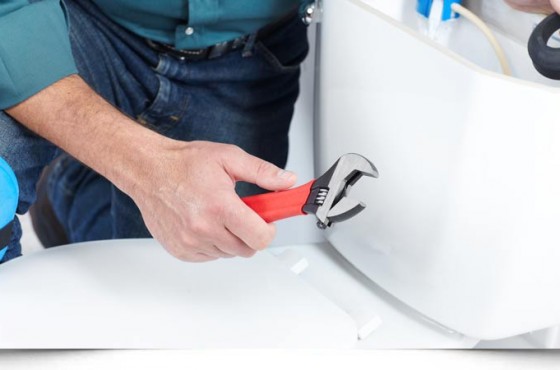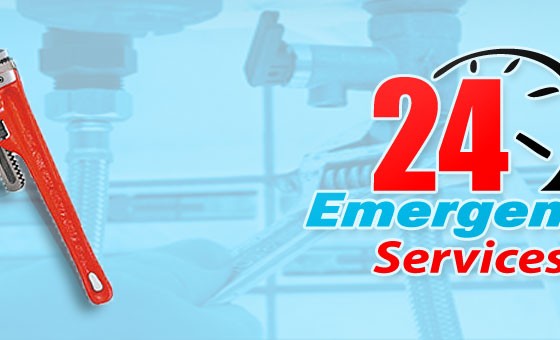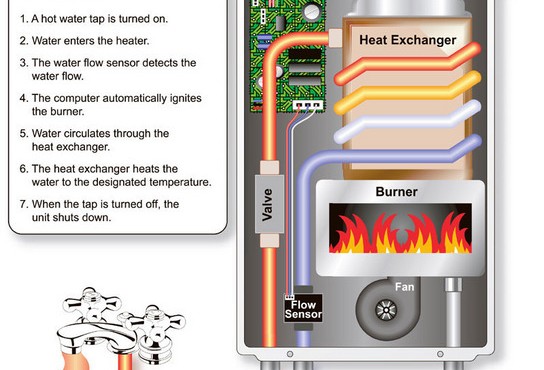Types of Water Heaters
Generally there are two types of Water Heaters used now a days, one is Gas water heater and another is Electric water heater.
An electric water heater can be used anywhere because it is easy to install and easy to operate. A gas water heater is mostly installed in a home that already uses gas for another purpose such as furnace.
Main Reasons of Failure of Water Heaters
There are few main causes due to which heater mostly fails:
- Negligence: The greatest reason for water heater failure is negligence. Most hot water heaters are installed and never looked at again. Not a good idea, maintenance is required time to time.
- Internal Rust: Water heaters have internal anodes that get used up. We should check up for anodes at least once in half a year and they should be replaced when required because it increases the life of heater.
- Sediment Build up: Sediments start building up when hard water is heated. It starts collecting in the bottom of the tank and causes the corrosion at the bottom of tank which may lead to leakages in tank’s body.
- High Water Pressure: High water pressure is a main cause of water line faucets and it can damage our water heater because mostly water heaters are designed for 60 to 82 psi range.
- Improper Sizing: If your water heater is too small, it will be used all the time and it will 100% go for failure.
- Bad Rating Power Supply: You should use a stabilizer for water heaters; it will definitely increase the life of water heaters preventing them from bad rating power supply.
- Continue Switched On for Long Time: When people needs more heated water, they keep it continuously on, that may lead to failure of it.
When We Need To Replace Water Heater:
Like any appliances water heaters are also to be replaced. There are few indications, when water heaters must be replaced:
- Service Life/ Age of the Water Heater: The service life of water heater is approx 8 to 10 years for electric water heaters and 6 to 8 years for gas water heaters suggested by mostly manufacturers. That may vary with the design of unit, installation quality, weather quality of area, work load on heater, and finally the level of maintenance a water heater receives.
- Leakage form Hot Water Tank: A leak from hot water tank is usually caused by an internal problem like deposition of sediments at the bottom of the tank and is rarely fixable. In this scenario it’s quite likely water heater will need to be replaced.
- Corrosion/ Rust: Time to time you should check the water tank for any rust orcorrosion marks, particularly the area which is around the temperature and pressure relief valve and around the inlet connection and outlet connections. You should also check the water for a rusty color, which could be the indication for rust inside the tank. Once rust starts taking place inside the tank, it can’t be fixed. It is the time to replace the heater before tank starts leaking.
- Chocked Drain Valve: Over a period of time, sediment starts building up inside the water heater tank. You can prevent your heater from deposition of sediments by flushing it. You have to flush the heater at least once in a year and it can help you to extend the life of heater. However, if you are not able to exercise the flushing for a longer period then the sediment build-up to a level can no longer be resolved. At this point of time you have only the option to replace the heater.
- Water Is Cold/ Luke Warm: If water heater is not giving hot water as hot as it used to be, or it is giving cold water, then there may be something wrong with the heater. First of all you should check for the thermostat for serviceability and after that you have to check for the symptoms mentioned above. If you find any of those symptoms then you need to replace the heater because it is likely your heater is beyond repair.
- Leakage from Mounting of Pressure Relief Valve or From Valve: There may be some chances after a long service of pressure relief valve it starts leaking, you should immediately change the valve because it may cause to a bigger damage to the body of tank. In other scenario may be leakage is happening due to the mounting of pressure relief valve then there is no chance to repair it and need to replace the unit.
- Internally Leakage in Gas Pipe Line (Gas Water Heaters): In case of internal leakage in gas pipe line of heater, it is hard to repair. If you repair, it may work for a while but not long lasting, replacement is suggested.
Some Guideline for Replacing the Water Heater with New One:
It is likely that if you are thinking of water heater replacement, you will simply replace it with the same size and with same configuration, because you have to keep in mind about availability of space at your house. The upgrade possibilities that may be considered, for example: if space allows, you may choose to increase the heater’s capacity to facilitate your growing family. And one most important thing is to be kept in mind is the next water heater is to be more energy efficient and economic.
When you are looking for a water heater, you may consider the following features:
- Capacity (30 to 40 gallon)
- Heater’s Recovery rate (recovery rate of a heater is the number of gallons, heated by a heater in an hour)
- Heater’s Dimensions (width, depth and height – will the heater fit in the space which you have for it?)
- Service centre (the brand which have nearby service centre)
- Design (the look which suits your house)
- The Rating (a sticker on the side, which indicates energy efficiency rating of a heater)
- Price tag (consider a competitive price tagged heater available with best features)
Before making any purchase of a new water heater or going for water heater replacement on existing water heater, you should take advice from a professional.





